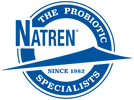Probiotics provide a variety of benefits, especially for digestive health, for everyone who takes these supplements. A new study shows that probiotic supplementation can help boost the immune system in athletes and reduce their risk of upper respiratory tract infections. We’ve written about some of these benefits in a past blog, and research continues to support this idea.
Scientists have known for years that athletes are at great risk of infection while training for competition. Training schedules, lack of sleep, exhaustive exercise, stress, and travel associated with competition can increase an athlete’s risk of getting sick. Athletes are eager to make whatever changes necessary to stay at the top of their game, but many are weary of taking anything that might compromise their ability to compete.
Now researchers are investigating the role that probiotic supplements may have in keeping athletes healthy during intense training. Probiotic supplements help boost levels of beneficial bacteria in the digestive tract and support a balanced internal ecosystem.
Intense Training and the Risk of Upper Respiratory Tract Infections
Intense, prolonged exercise is associated with temporary suppression of the immune system and increased the risk of infection. This makes athletes who train hard for long periods especially vulnerable to upper respiratory tract infections (URTIs) that can negatively affect performance during competition.
Research on intense training in athletes found an association between overtraining and URTIs. In a cornerstone 1996 study of 24 swimmers, 10 experienced symptoms of URTIs during a 4-week training program. That study recognized the association between intense training and illness but stopped short of finding a reason for the link.
A 2015 study in laboratory mice suggests that microbes in the gut affect exercise performance. In this study, published in The Journal of Strength & Conditioning Research, researchers found that subjects with a greater diversity of intestinal flora lasted longer in swim-to-exhaustion tests. The subjects also produced a greater amount of antioxidant enzymes that abate the physiological stresses associated with intense physical activity.
In another study, researchers found that probiotics helped runners perform better on a treadmill in 95-degree heat. During strenuous exercise, bad bacteria can leak from the gut into the bloodstream to trigger inflammation and raise core temperatures, which reduces the body’s tolerance of hot conditions. Probiotics, or good bacteria, improve the health of the gut lining to reduce leakage and control inflammation. Participants in this study who took probiotics were able to exercise longer than the subjects who did not take the supplements.
The way the body uses tryptophan may also play an important role in immunosuppression. Tryptophan is an amino acid, essential for the biosynthesis of protein in the human body. While tryptophan is beneficial and essential, high levels of this amino acid and its catabolites can suppress the immune system. The newest study shows probiotics can reduce tryptophan levels, which in turn decreases the risk of infection.
Probiotic Supplements Beneficially Affect Tryptophan and Reduce Risk of URTIs
The focus of the study, published in the scientific journal Nutrients, was to examine the effects of probiotic supplementation on the metabolism of tryptophan and the incidence of URTIs after three months of exhaustive exercise in trained athletes.
The researchers enrolled 33 elite athletes into the study. The participants were divided into two groups, one group took a probiotic each day for 12 weeks while the control group took a placebo. Both groups continued with their regular exercise and diet routines for winter training.
The scientists drew blood from the participants to measure serum concentrations of tryptophan. The researchers also measured the concentration of the immune activation marker neopterin at the beginning of the study and after 12 weeks, both at rest and immediately after exercise. All participants made entries into a daily diary and noted any infectious symptoms.
After 12 weeks, tryptophan levels dropped by 11 percent in the test group receiving probiotic supplementation but remained unchanged in the control group receiving placebo. Members of the control group were also more than twice as likely to experience one or more symptoms of upper respiratory tract infection as compared with those taking probiotics.
Supplementation with probiotics may prove to be an excellent and easy way for athletes to maintain their health and avoid upper respiratory tract infections while undergoing intense training.
The post More Evidence Supporting Probiotic Benefits for Athletes appeared first on Natren Probiotics Blog.




0 comments